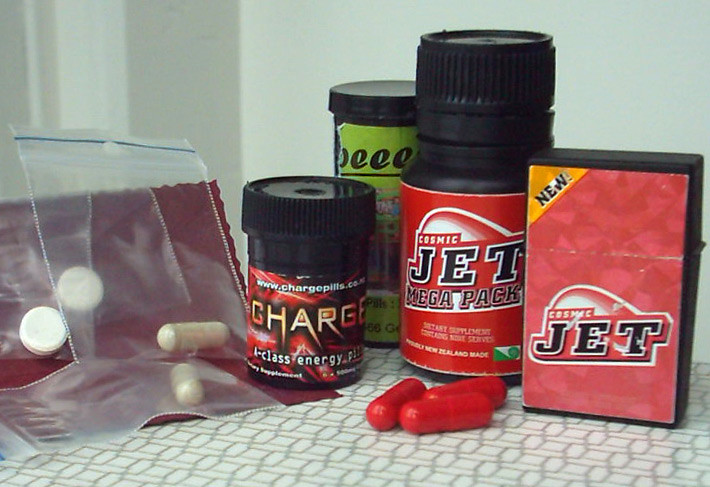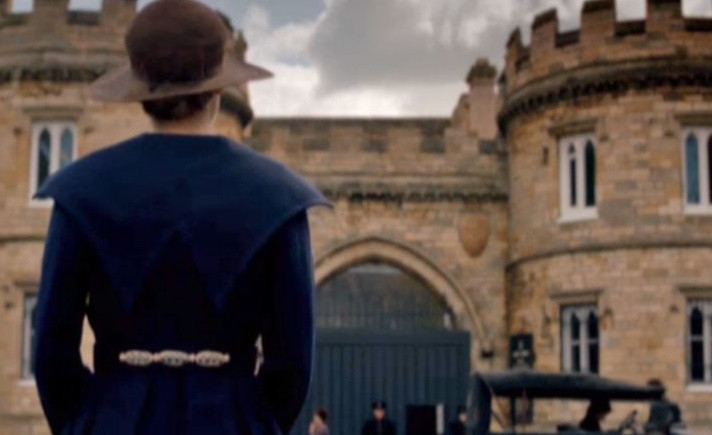Lincoln: Idyllic Downton Abbey city turned into zombie central by legal highs crisis

If you want an idea of what sort of city Lincoln is, just go to the Lincolnite, one of the city's main news portals.
Headlines include: "Joseph Banks Conservatory set for demolition in the lawn revamp"; "Chancellor pledges £15k for Lincoln Tank Memorial"; and the hardest-hitting story of all, "Lincoln Man named sexiest farmer in Britain."
If you're looking for action and adventure, Lincoln probably isn't the first place you'd look. It's a medieval cathedral city of craft fairs and pleasure-boats, fringed by patchwork quilts of gentle farmland. The city was recently named among Britain's best places to live by the Sunday Times, and its castle was used in Downton Abbey. Margaret Thatcher, Lincolnshire's most famous daughter, would surely be proud.
But something is stirring beneath Lincoln's doily-covered veneer. A problem normally associated with the grimy metropolises of London and Manchester. Something which would make the Iron Lady turn in her grave.
Cornucopia of mind-bending substances
Lincoln is hooked on drugs. More specifically, legal highs, synthetic substitutes which are designed to mirror conventional narcotics. The police hate them because they can't swoop in, confiscate the stash and prosecute the peddlers, as they can with mainstream substances. And the drugs are manufactured in cottage industries, so there is no way of knowing what goes into each individual product.
In 2013 there were 347 police call-outs related to legal highs in Lincolnshire, a quarter of the national total. Figures from the Centre for Social Justice show that the number of incidents involving legal highs in Lincoln increased from seven in 2010 to 820 in 2014.
According to local police inspector Pat Coates, a cornucopia of mind-bending substances are freely available to the scions of the good burghers of Lincoln – and the list sounds like something from Chris Morris's satirical news programme Brass Eye.

"We see 30 or 40 different products" Coates says. "One of the popular ones is Voodoo Gold, then there's Clockwork Orange, Happy Joker - which comes in different flavours, a juicy fruit flavour and a blueberry flavour.
"You've also got Go Gain – that's a play on cocaine - Magic Crystals, Green Mamba and Black Mamba."
Yet, for all the ludicrousness of the drugs' names, their effects are serious. Although Lincoln has yet to see a fatality directly attributable to legal highs, one user, just 15-years-old, had to be taken to intensive care last year after using drugs bought over the counter.
One Lincoln resident, Jamie, recently talked to the BBC about the scale problem. He claimed that "recently you can see people just staggering up and down the high street, almost like zombies - absolutely off their face."
Coates says: "People who are smoking the synthetic cannaboids are having to go to hospital because of the effects, which I haven't necessarily seen with cannabis. [The problems] can be anything from heart issues to vomiting, really unwell. I'm no medical expert but that's what we've seen.
"With Go Gain people can become violent and aggressive. People that have been arrested have come to us under the influence, they've self-harmed. It's put people quite at risk and it's difficult because we don't know what they've taken."
"It's better than doing the illegal stuff"
'Recently you can see people just staggering up and down the high street, almost like zombies - absolutely off their face.'
Lincoln has had several head shops over the years. Head Candy is still going strong, although two other establishments, Blue Banana and Marleys, have now shut down. The latter closed just weeks ago after pressure from the police, who were on the brink of issuing an anti-social behaviour closure order.
However, despite this minor triumph, Coates is frustrated at the difficulty he and his fellow officers face in confronting the problem.
"They're basically synthetic drugs, designed to mirror the conventional drugs. The synthetic cannaboids, for example, are designed to mirror cannabis. Go Game is designed to mirror cocaine. But they're within the loopholes of the law because they're synthetic."
And who exactly has been frequenting the head shops? We wanted to ask Head Candy, but no-one was available to speak to us. However, Dane Vincent, a former student at Lincoln University who produced an award-winning documentary on the problem during his undergraduate days, was more forthcoming.
Vincent's documentary, All Bonged Up, was released in 2009, demonstrating that Lincoln's love of legal highs hasn't emerged overnight. It seems that back then the problem was largely confined to the city's student population, who took the drugs at house parties – which might explain the negligible number of reported incidents on the streets back then.
The documentary is based on a herb called Salvia Divinorum, which is found in Voodoo Gold. The drug is smoked in joints and bongs like cannabis and has hallucinogenic properties, accompanied by a headrush.
Vincent recalls: "There was quite a lot of people using legal highs [at Lincoln]. We looked at salvia, which was perfectly legal, they got it from the stores and it's better than doing the illegal stuff."
When asked what sort of background the users had, Vincent says: "It was a mixture of boys and girls, widespread social background, there was a German girl, a group of English people, a lad from Asia. There was no one specific demographic."
Vincent and his film crew visited the Blue Banana, which was doing a roaring trade at the time. "I never saw any advertisements, I never saw people pushing the drugs on the streets. Just the shop window. The group I looked at was students and it's an easy word of mouth situation for people of that age."
Looking back, Vincent says Lincoln's legal high "problem" as a relatively benign issue. "It was just a laugh for them. They'd heard about it from a mate, heard it was fun, and were just trying it out."

There are all sorts doing it – but the homeless are particularly vulnerable
It's easy to create a theory around Vincent's words, using basic geography and cod psychology. Lincoln has a big student population, but relatively little in the way of hedonistic pursuits. Students in, say Manchester or Newcastle, have a glut of dodgy nightclubs and an unseen army of local dealers ready to feed their Class A curiosity.
But Lincoln, with its farmer's markets and Barbour-jacketed respectability, offers far fewer outlets for those who wish to push the narcotic frontier beyond alcohol and marijuana. Throw in a relatively liberal atmosphere congenial to those who want to run headshops, and you have a simple solution.
But Inspector Coates believes the problem has now morphed, its centre of gravity migrating away from the student house parties onto Lincoln's streets.
In fact Coates believes the core group of users are no longer students looking to "have a laugh" - but homeless and vulnerable people living in quiet desperation, ripe for the head shop proprietors to exploit.
"The university haven't reported massive problems with their students taking legal highs," Coates says. "What are very visible issues in Lincoln are around our very vulnerable communities, the homeless, etc, and they seem to take it. The biggest issue we have is our on-street communities, homeless, drinkers.
"It might be the location of our shops, [which are] right where the homeless people are. The price varies, but it can be cheaper than what you pay on the streets."
"They sleep on the streets now, under bridges."
Yet the lure of headshops may actually be bolstering Lincoln's homeless army, sucking previously upstanding members of the community into the spiral of addiction and despair.
Local resident Jamie told the BBC that, while he took legal highs once and decided they weren't for him, "a few people I did know have carried on doing it and I've watched them become homeless and they look nothing like they used to.
"They're just staggering up the high street, they sleep on the streets now, under bridges."
"The only way forward is legislative change"
Coates believes that, following the closure of Marleys, Lincoln may finally have turned the corner in its battle against legal highs.
'What are very visible issues in Lincoln are around our very vulnerable communities, the homeless etc, and they seem to take it.'
"The opening of that premise in April 2013 coincided with a massive spike in incidents, it was on the high streets and we were getting a lot of complaints. We had regular complaints with them.
"Since Marley's has closed, we've been working with the city council for a public space protection order, and building a case against the second headshop. Hopefully this will overcome the worst of the issues.
"But the only way we can tackle it is via legislative change. We might shut Head Candy under anti-social behaviour legislation, but that doesn't stop someone else opening up the road just the same.
"I would say the legislative framework isn't fit for purpose, it isn't fit for legal highs. It's built around an act from 1971, which bans individual chemicals piecemeal. But if the manufacturers change the chemicals by one molecule it'll have the same effect. It's too slow."
This year Lincoln is preparing to welcome tourists from all over the world to celebrate the 800<sup>th anniversary of the signing of Magna Carta, one of the world's most important political documents. Yet, as the tourists mill about the city's well-heeled streets, it seems they will be confronted by a very modern problem - one which the politicians of today seem unwilling, or unable, to solve.
© Copyright IBTimes 2025. All rights reserved.




















